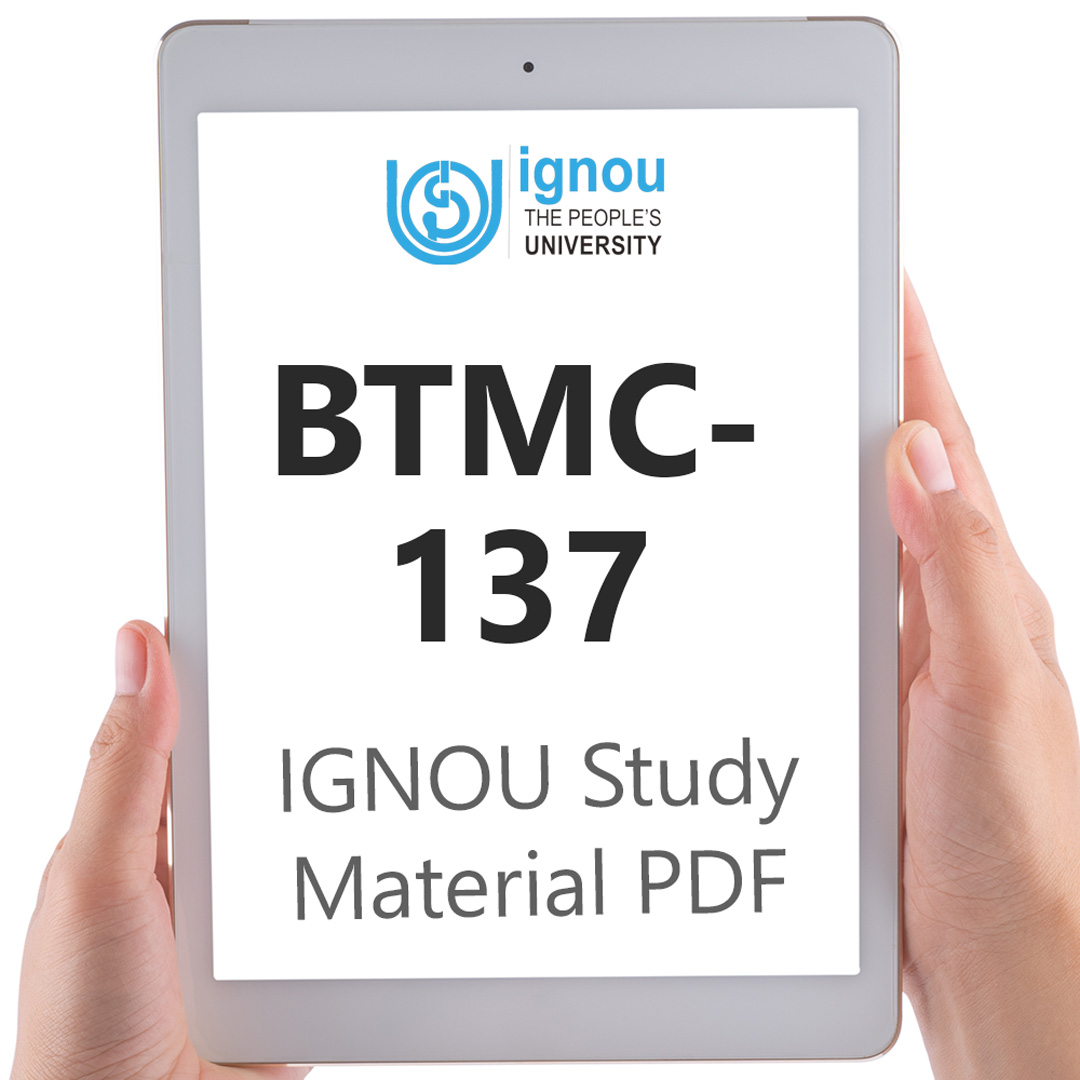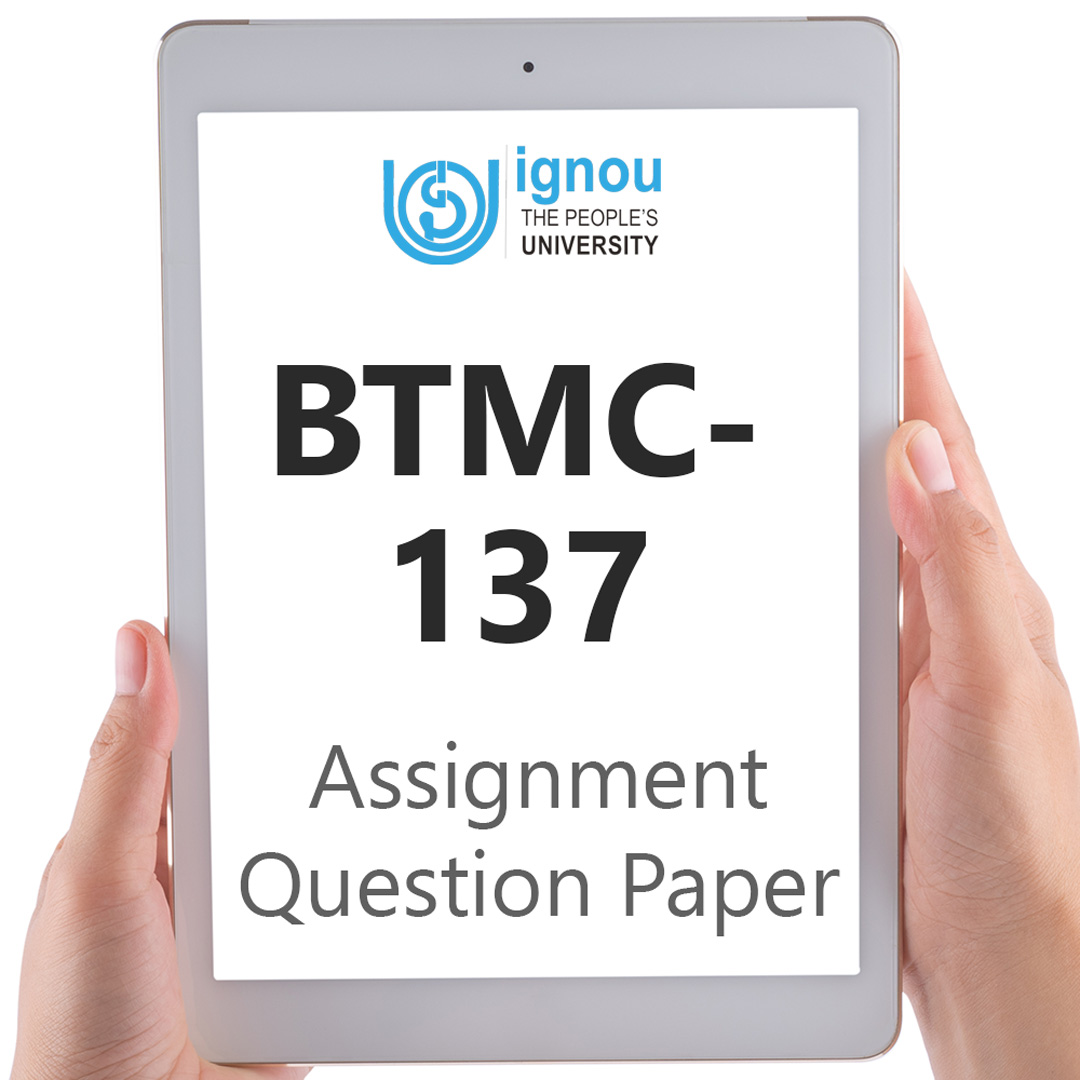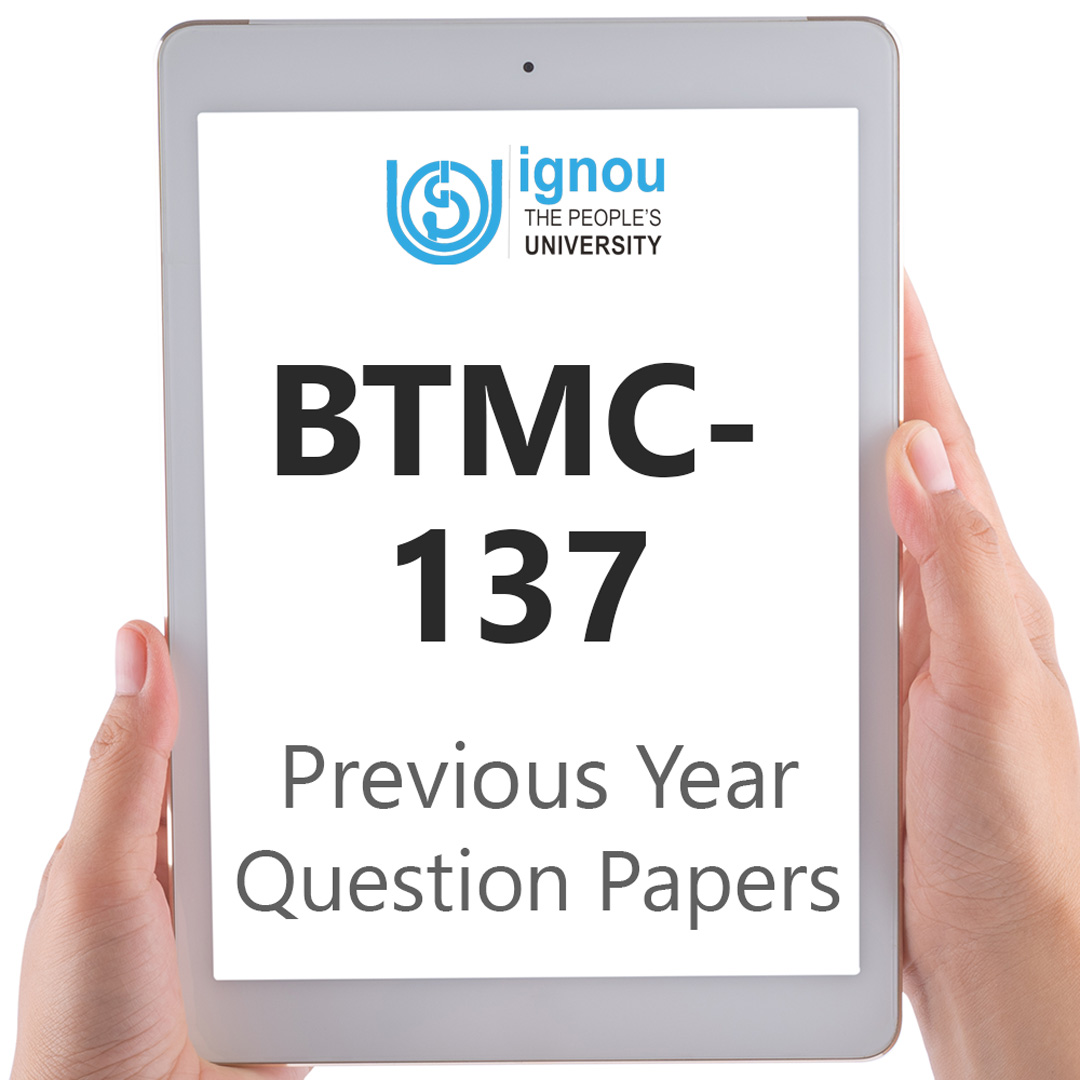If you are looking for BTMC-137 IGNOU Solved Assignment solution for the subject Profile of Modern Tourism, you have come to the right place. BTMC-137 solution on this page applies to 2022-23 session students studying in BAVTM courses of IGNOU.
BTMC-137 Solved Assignment Solution by Gyaniversity
Assignment Code: BTMC-137/TMA/2022-23
Course Code: BTMC-137
Assignment Name: Profile of Modern Tourism
Year: 2022-2023
Verification Status: Verified by Professor
Assignment-A
Answer the following in about 500 words each.
Q1) Why do we need Tourism Policy? Discuss in detail with suitable examples.
Ans) Tourism is an important industry that contributes significantly to the global economy. It is a sector that encompasses a wide range of activities, including transportation, accommodation, food and beverage services, travel agencies, tour operators, and many more. Due to the varied nature of this industry, it is important to have a well-crafted tourism policy that can regulate and promote the sector effectively.
Economic Development
Tourism is a significant contributor to the economy of many countries, and it has the potential to create jobs, generate income, and stimulate economic growth. Tourism policy can provide a framework for the development of the tourism industry as an industry, which can help to promote economic development. For example, the tourism policy of Thailand has been successful in promoting the country as a major tourism destination, which has helped to drive economic growth and create jobs. Thailand's tourism policy has focused on the development of tourist infrastructure and services, the promotion of tourism attractions, and the implementation of marketing and promotion strategies.
Environmental Protection
Tourism can have a significant impact on the environment, including natural resources, wildlife, and cultural heritage. Tourism policy can help to regulate the industry and ensure that it operates in an environmentally sustainable manner. For example, the tourism policy of New Zealand emphasizes the importance of sustainable tourism, which promotes responsible tourism practices and environmental conservation. New Zealand's tourism policy has focused on the development of sustainable tourism practices, such as eco-tourism, and the implementation of environmental conservation programs.
Cultural Preservation
Tourism can also have an impact on the cultural heritage of a country or region. Tourism policy can help to promote cultural preservation and heritage conservation, while also ensuring that local communities benefit from tourism activities. For example, the tourism policy of India emphasizes the importance of preserving the country's cultural heritage, while also promoting tourism as a means of supporting local communities. India's tourism policy has focused on the development of cultural tourism, the promotion of sustainable tourism practices, and the implementation of community-based tourism programs.
Quality of Tourism Services
Tourism policy can help to regulate the quality of tourism services, including accommodation, transportation, and tour guides. This can help to improve the overall quality of the tourism industry and enhance the experience of tourists. For example, the tourism policy of Japan emphasizes the importance of providing high-quality tourism services, which has helped to promote the country as a leading tourism destination. Japan's tourism policy has focused on the development of high-quality tourism services, the promotion of sustainable tourism practices, and the implementation of quality assurance programs.
Marketing and Promotion
Tourism policy can also help to promote a country or region as a tourism destination, through marketing and promotion activities. This can help to attract more tourists and generate greater economic benefits. For example, the tourism policy of Dubai has been successful in promoting the city as a major tourism destination, through various marketing and promotion activities. Dubai's tourism policy has focused on the development of world-class tourism infrastructure, the promotion of luxury tourism, and the implementation of innovative marketing and promotion strategies.
Q2) What do you mean by accommodation industry? How does it contribute to Indian economy?
Ans) The accommodation industry refers to the sector of the hospitality industry that provides lodging facilities to travellers. It includes a wide range of establishments, such as hotels, resorts, motels, guesthouses, hostels, and vacation rental properties, among others. The accommodation industry plays a crucial role in the tourism sector, as it provides the necessary infrastructure for travellers to stay and enjoy their trip.
Contribution to Employment
The accommodation industry is a significant employer in the Indian economy, providing jobs to many people. According to a report by the Ministry of Tourism, the Indian hospitality sector is estimated to provide employment to over 87 million people by 2025. The industry provides employment opportunities in various fields, including housekeeping, front office, food and beverage services, marketing, and management. The growth of the accommodation industry has also led to the development of ancillary industries, such as transportation, tour operators, and travel agencies, which further contribute to employment generation.
Contribution to Foreign Exchange Earnings
The accommodation industry is a major contributor to the foreign exchange earnings of the Indian economy. Tourism is one of the largest foreign exchange earners for India, and a significant portion of the foreign exchange earnings comes from the hospitality sector. According to the Ministry of Tourism, foreign exchange earnings from the hospitality sector grew from $2.2 billion in 2005 to $28.6 billion in 2019, indicating the importance of the industry to the Indian economy. The growth in foreign exchange earnings has been driven by the increase in foreign tourist arrivals and the expansion of the hospitality sector.
Contribution to GDP
The accommodation industry is an important contributor to the Gross Domestic Product (GDP) of India. The tourism sector, of which the accommodation industry is a significant part, contributes around 9.2% of the GDP of India. The sector has the potential to contribute more to the GDP, as it is still in a nascent stage in the country. The growth of the industry has been facilitated by the government's initiatives to promote tourism and the development of infrastructure, such as airports, highways, and railways, that connect different parts of the country.
Promotion of Regional Development
The development of the accommodation industry has also led to the promotion of regional development in India. The hospitality sector is a significant contributor to the development of the local economy, particularly in the rural areas, where tourism has the potential to generate income and employment. The promotion of rural tourism has been a focus area for the Indian government, with initiatives such as the Swadesh Darshan scheme and the Rural Tourism scheme, which aim to develop the rural areas and promote sustainable tourism practices.
In conclusion, the accommodation industry plays a crucial role in the Indian economy, contributing to employment generation, foreign exchange earnings, and the GDP of the country. The growth of the industry has been facilitated by the government's initiatives to promote tourism and the development of infrastructure. The industry also has the potential to promote regional development and contribute to the sustainable development of the country. The growth of the accommodation industry is expected to continue, given the increasing demand for travel and the expansion of the tourism sector in India.
Assignment B
Answer the following in about 250 words each.
Q3) Is it possible to develop intangible heritage for tourism? Justify your answer.
Ans) Yes, it is possible to develop intangible heritage for tourism. Intangible heritage refers to the cultural practices, traditions, and expressions that are inherited from the past and are passed down from generation to generation. Examples of intangible heritage include traditional music, dance, folklore, and oral traditions, among others. These intangible elements are an integral part of a country or region's cultural identity and can be used to develop tourism products that can attract visitors.
The development of intangible heritage for tourism can provide several benefits. It can help to preserve and promote the cultural heritage of a country or region, generate economic benefits for the local communities, and create job opportunities for the local people. By showcasing the intangible heritage, tourists can have a better understanding of the local culture and traditions, which can lead to a deeper appreciation of the destination and a more meaningful travel experience.
One example of how intangible heritage can be developed for tourism is through the promotion of traditional festivals and events. Festivals and events that celebrate local traditions and culture can be a major attraction for tourists, as they provide an opportunity to experience the local customs and practices. For example, the Kumbh Mela festival in India, which is celebrated every twelve years, attracts millions of visitors from all over the world who come to witness the religious rituals and ceremonies associated with the festival.
Another example is the development of cultural trails and routes that highlight the intangible heritage of a region. These trails and routes can include visits to local artisans, musicians, and storytellers who can showcase their traditional skills and practices. These experiences can be packaged together to create tourism products that cater to the interests of different types of travellers, such as cultural enthusiasts, adventure travellers, and food lovers.
Q4) How does Domestic tourism affect the future of India?
Ans) Domestic tourism can have a significant impact on the future of India in several ways.
Firstly, it can help to boost the economy by generating revenue for the tourism industry, which in turn creates jobs and opportunities for local communities. Domestic tourism can also help to increase the demand for local products and services, which can have a positive impact on the overall economy.
Secondly, domestic tourism can play a role in promoting cultural exchange and fostering national unity. When people travel to different parts of the country, they can learn about the customs and traditions of other regions, which can help to promote understanding and respect between different communities. This can also help to promote a sense of national identity and unity, which is important for the social cohesion of the country.
Thirdly, domestic tourism can play a role in promoting sustainable development and environmental conservation. As more people travel within the country, there is a greater demand for eco-friendly tourism products and services. This can lead to the development of sustainable tourism practices that protect the environment and the natural resources of the country.
Finally, domestic tourism can also help to reduce the country's dependence on international tourism. This is especially important in times of global economic uncertainty, such as during the COVID-19 pandemic. Domestic tourism can provide a stable source of revenue for the tourism industry and help to reduce the impact of external shocks on the economy.
In conclusion, domestic tourism can have a significant impact on the future of India. By promoting economic growth, fostering national unity, promoting sustainable development, and reducing dependence on international tourism, domestic tourism can help to build a more resilient and sustainable tourism industry that benefits all segments of society.
Assignment C
Answer the following in about 100 words each.
Q6) Differentiate between Inbound and Outbound tourism.
Ans) Inbound tourism and outbound tourism are two different types of tourism. Inbound tourism refers to the arrival of tourists from other countries into a country, while outbound tourism refers to the departure of residents from a country to other countries for tourism purposes.
Inbound tourism generates revenue for the local tourism industry and creates job opportunities for local communities, while outbound tourism involves spending money in other countries and has a negative impact on a country's economy. Inbound tourism requires a country to have the necessary infrastructure to accommodate tourists, such as hotels, restaurants, transportation, and tourist attractions, while outbound tourism requires a well-developed transportation system and travel infrastructure to accommodate the needs of its residents traveling to other countries.
In summary, inbound tourism refers to tourists coming into a country, while outbound tourism refers to residents of a country going out to visit other countries.
Q7) Do you think terrorism affect tourism? Answer with suitable examples.
Ans) Yes, terrorism can significantly affect tourism in a negative way. Terrorist attacks can create fear and uncertainty among tourists, making them reluctant to travel to destinations that have experienced such attacks.
For example, the terrorist attacks on the World Trade Center in New York in 2001 led to a significant decline in international tourism to the United States. Similarly, the terrorist attack on a hotel in Mumbai in 2008 led to a decrease in international tourist arrivals to India.
In addition to directly impacting tourism, terrorism can also have a negative impact on the wider economy. A decline in tourism can lead to a loss of jobs and revenue for the tourism industry, as well as a decrease in foreign exchange earnings.
Overall, terrorism can have a significant negative impact on the tourism industry and the wider economy. Governments and the tourism industry must work together to ensure the safety and security of tourists and to promote the message that travel is safe and secure.
Q8) Does ‘PRASAD’ Scheme help tourism promoters? Explain briefly.
Ans) Yes, the PRASAD scheme (Pilgrimage Rejuvenation and Spiritual, Heritage Augmentation Drive) can help tourism promoters in India. The scheme was launched by the Indian government in 2014 with the aim of developing pilgrimage and heritage destinations in the country to promote tourism.
Under the PRASAD scheme, the government provides financial assistance to state governments, union territories, and private sector organizations to develop and improve infrastructure, facilities, and services at pilgrimage and heritage sites. This includes the development of tourist amenities, such as accommodation, transportation, and sanitation facilities, as well as the preservation of heritage sites and the promotion of local arts, crafts, and cuisine.
The PRASAD scheme can benefit tourism promoters by providing them with the necessary financial support and infrastructure to develop and promote pilgrimage and heritage destinations. This can help to attract more domestic and international tourists, create job opportunities for local communities, and generate revenue for the tourism industry.
Q9) What is motivation?
Ans) Motivation is the driving force behind an individual's behaviour or actions. It is the reason why people behave in a certain way and take specific actions to achieve their goals. Motivation can be influenced by a variety of factors, including personal needs, desires, beliefs, and values, as well as external factors such as rewards, recognition, and social pressure. The level of motivation can impact an individual's performance and achievement of goals. Motivation can be intrinsic or extrinsic, with intrinsic motivation coming from within a person and extrinsic motivation coming from external factors.
Q10) Host behaviour is one of the important infrastructures in tourism. Justify the statement.
Ans) Host behaviour is an important infrastructure in tourism as it can greatly influence the experience of visitors and the success of a tourism destination. The way in which hosts behave towards tourists can impact their perception of the destination and the likelihood of them returning or recommending it to others.
Positive host behaviour can enhance the quality of the visitor experience, leading to higher levels of satisfaction, repeat visits, and positive word of mouth. On the other hand, negative host behaviour can result in dissatisfied visitors, lower levels of repeat visits, and negative word of mouth.
Host behaviour can include factors such as hospitality, friendliness, helpfulness, respect, and cultural sensitivity. It is important for host communities and individuals to recognize the importance of positive behaviour towards tourists, as it can have a significant impact on the success of the tourism industry and the local economy.





